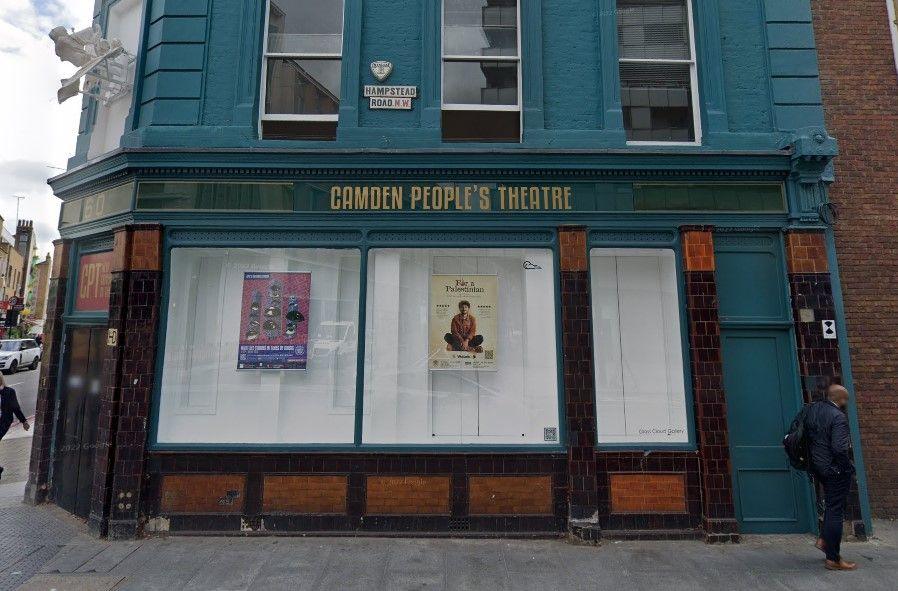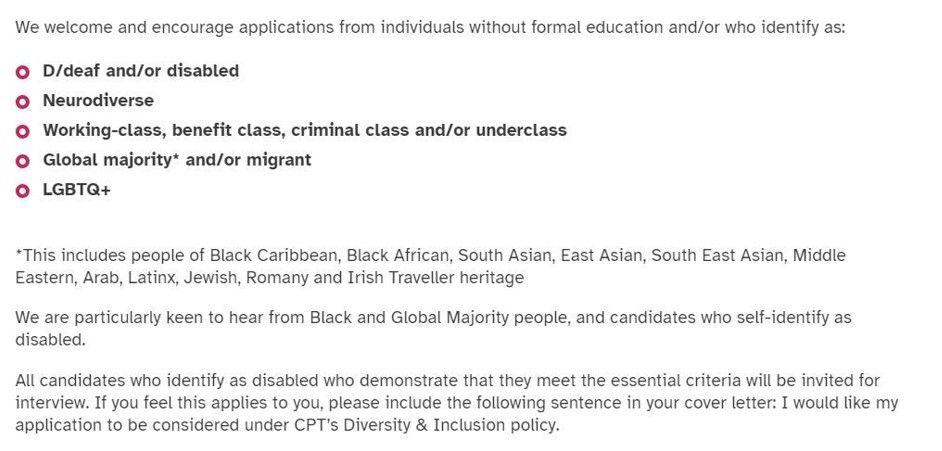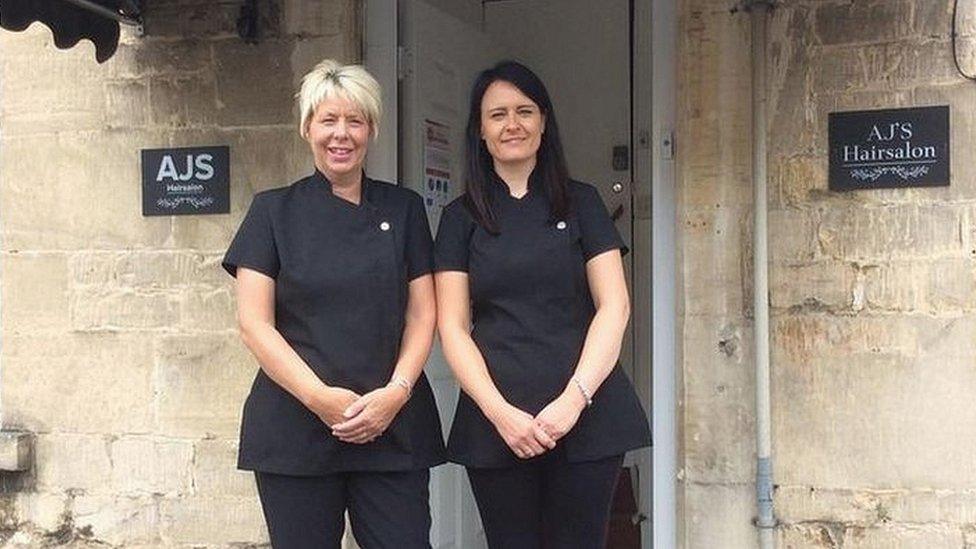Theatre job advert terms 'position people as inferior'

Camden People's Theatre used the terms "benefit class, criminal class and underclass" in its job adverts
- Published
A north London theatre has been criticised for using the terms "benefit class, criminal class and underclass" in its job adverts.
Camden People's Theatre used the phrase in two recent job adverts.
It prompted criticism from the UK's first professor of social mobility, who said some of the terms used "position people as inferior".
The theatre has not responded to requests for comment.
Phrasing from the job adverts was posted on X, formerly Twitter.
One critic of the wording commented that "in trying to include everyone, they have managed to offend everyone".
Under discrimination law, employers must not state or imply in a job advert that they will discriminate, external against anyone.

The wording was used in two job adverts posted by the Camden People's Theatre
'Harmful deficit approaches'
Lee Elliot Major, professor of social mobility at the University of Exeter, said: "We need to carefully consider the language we use when promoting opportunities for people who have faced extra barriers and challenges in life."
He added: "I would certainly avoid terms like 'criminal class' or 'underclass' which immediately position people as inferior, when they often have a lot to offer.
"This is about moving away from harmful deficit approaches which lead us to unfairly stereotype and label people."
The wording in the Camden People's Theatre advert is similar to those for the Regional Theatre Young Director Scheme.
Its wording states that hiring managers are keen to meet people who are "Black or Global Majority; Deaf and/or disabled, neurodivergent; working, benefit and criminal class and LGBTQIA+".
Reece McMahon, executive director of Chisenhale Dance Space in east London, said on X: "This language has actually become quite commonplace in the theatre sector.
"Lots of it has come out of direct conversations with people who felt that ‘working class’ no longer reflected the depths of their experiences.
"And if anything the term ‘working class’ had been claimed by lower-middle classes and so new language needed to exist.
"I’d consider myself to be a product of a benefits class, and though I don’t use the term, it more accurately captures my experience growing up.
"There is a sense of language like this further dividing an already minority and marginalised group though which I’ve always wondered how helpful that is."
A spokesperson for Arts Council England said: “The Arts Council is aware of the job advertisement for joint artistic director and CEO of Camden People’s Theatre and we are in regular contact with the theatre.
"Whilst we reserve the right to be involved in the recruitment process for senior roles at all National Portfolio Organisations, the leadership and board remain responsible for operational and day-to-day management of the organisation’s activities.”
The National Theatre said it would not be commenting.
Listen to the best of BBC Radio London on Sounds and follow BBC London on Facebook, external, X, external and Instagram, external. Send your story ideas to hello.bbclondon@bbc.co.uk, external
Related topics
- Published3 September 2020
